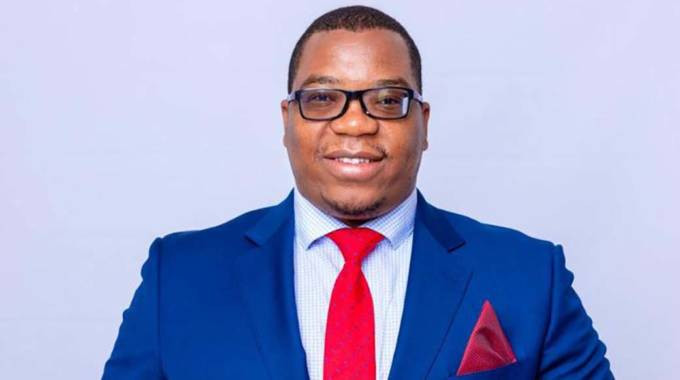
HARARE is facing a growing outbreak of hand, foot and mouth disease (HFMD), with more than 600 cases already reported across he city.
Cimas Health Group’s Learnmore Shoti said the outbreak has hit hardest in Mabvuku and Tafara, but infections are now spreading to Budiriro, Glen View, Mbare, Kuwadzana, Mufakose, Waterfalls and Braeside.
The illness, though usually mild, is highly contagious and has quickly become a public health concern.
“It is a common and contagious viral illness that causes sores in the mouth and a rash on the hands and feet,” Shoti explained.
HFMD is caused by the Coxsackievirus, which spreads easily among children through saliva, mucus, blister fluid or stool. It can also be transmitted by touching contaminated objects such as toys and doorknobs or by inhaling droplets from coughs and sneezes.
“This makes schools, day-care centres and crowded households particularly vulnerable,” Shoti said.
He added that parents and caregivers are being urged to watch for early signs of infection.
“Parents and caregivers should look for initial symptoms such as a fever and sore throat, followed by painful mouth sores and a rash with small blisters on the hands, feet and sometimes buttocks,” Shoti said.
- Cimas to invest US$8m in infrastructure…as it targets medical tourism market
- Cimas gives rural pupils a treat
- Cimas expands services in Mat’land
- Cimas feasts amid crisis
Keep Reading
“These blisters may be preceded by red spots and younger children may refuse to eat or drink due to the pain in the mouth.”
The illness typically lasts seven to 10 days, and while most cases resolve without complications, dehydration is a risk if children refuse fluids. Rare neurological complications can also occur.
“Despite the rapid spread, HFMD is generally mild compared to other childhood illnesses. It is typically a mild condition that usually clears up on its own. There are no reports of any hospitalisations or deaths linked to HFMD in Harare currently,” Shoti reassured. Children under 10 are most at risk, with the majority of cases occurring in those under five.
“HFMD usually affects children under 10 years of age but currently about 90% of the cases are in children under five years of age. It can affect adults but it is so rare since most adults have immunity against the infection,” he explained.
“The City of Harare has mobilised its health teams to contain the outbreak. It is raising awareness, encouraging hygiene, case reporting and isolation of sick individuals.
Treatment for symptoms is also available free of charge at all City of Harare clinics and hospitals.”
Shoti added that public health campaigns to raise awareness are commencing. He said schools and day-care centres are being advised to strengthen hygiene practices and encourage parents to keep affected children at home.
“They are encouraged to make sure they practice good hygiene and to encourage parents to isolate affected children at home,” he added. Shoti pointed out that hygiene is the cornerstone of prevention. Families are being urged to wash hands frequently, disinfect toys and surfaces and avoid sharing utensils.
“Hygiene plays a critical role in stopping the spread of coxsackievirus which causes HFMD. The virus is highly contagious and can survive on surfaces for days, making consistent and thorough hygiene practices essential for preventing transmission,” he stressed.
Shoti went on to explain that HFMD is primarily clinically diagnosed, based on a physical examination and the patient’s symptoms. Lab tests are usually not required.
“There is no specific treatment or cure for HFMD as it is a viral infection that usually resolves on its own. Treatment is mainly supportive care where we treat other symptoms such as pain, fever and itchiness,” he said.
“Parents can use paracetamol for pain and fever. If the rash is too much, calamine lotion will help.” While most cases are mild, parents should be alert to warning signs that require urgent medical care.
“Seek medical assistance if your child shows signs of dehydration such as reduced urination, dry mouth, dry lips, no tears when crying and sunken eyes,” Shoti said.
“Other rare but serious neurological complications include severe headache, confusion or disorientation, drowsiness, seizures or unexplained frequent startles, stiffness in the neck, weakness in the arms or legs or an unsteady gait and sensitivity to bright lights.”
He highlighted that isolation is key to stopping transmission. Infected children should be kept away from public areas where children can interact to reduce the risk of infection spreading to other children.
“Ideally, infected children should remain at home for at least a week after symptoms begin. They should also stay away from school for a week after the onset of the symptoms,” Shoti advised.
The outbreak has disrupted schools and day-care centres, with many parents forced to keep children at home. While the illness is mild, the sheer number of cases has strained families and raised concerns about hygiene standards in public institutions.
Health experts emphasise that the outbreak is a reminder of the importance of community-wide vigilance.
With no vaccine available, prevention relies entirely on hygiene, awareness and isolation of cases.
“HFMD is manageable, but it requires collective responsibility. By practicing good hygiene, isolating sick children and reporting cases promptly, Harare can contain the outbreak before it escalates further,” Shoti said.
“Hygiene plays a critical role in stopping the spread of coxsackievirus which causes HFMD,” he reminded families.”
Harare’s HFMD outbreak underscores the vulnerability of young children to contagious viral illnesses.
With over 600 cases already reported, the city’s health authorities are racing to raise awareness and promote hygiene.
While the disease is typically mild, its rapid spread demands urgent attention.
The coming weeks will be critical in determining whether Harare can halt the spread of HFMD. Parents, schools and communities are being urged to act decisively, ensuring that children are protected and the outbreak contained.
The information in this article is provided as a public service by the Cimas iGo Wellness programme, which is designed to promote good health. It is provided for general information only and should not be construed as medical advice. Readers should consult their doctor or clinic on any matter related to their health or the treatment of any health problem. — [email protected]/ WhatsApp: 0772 161 829/ phone 024-2773 0663.











